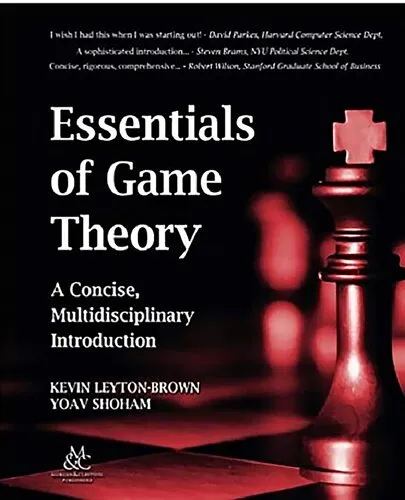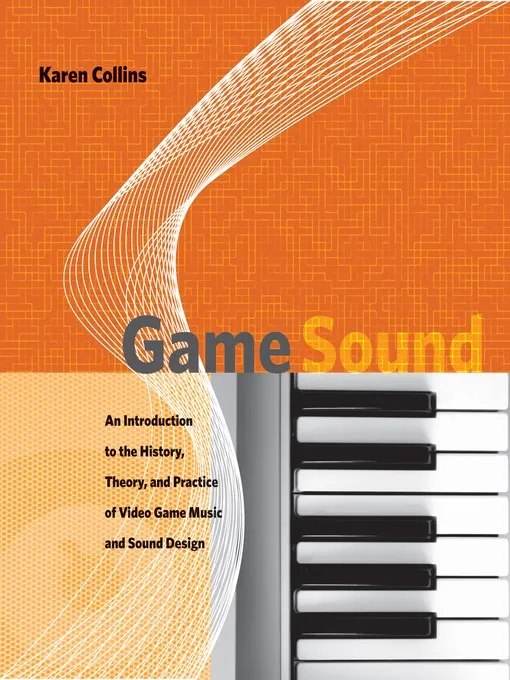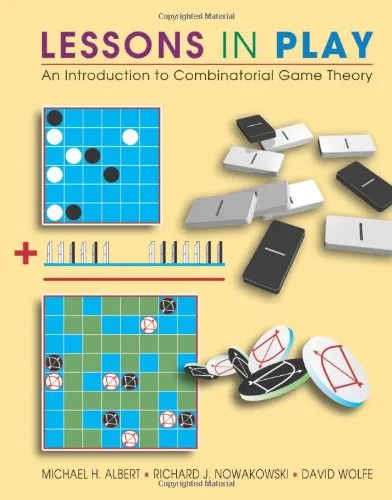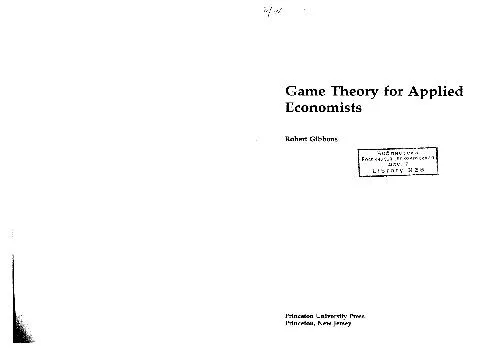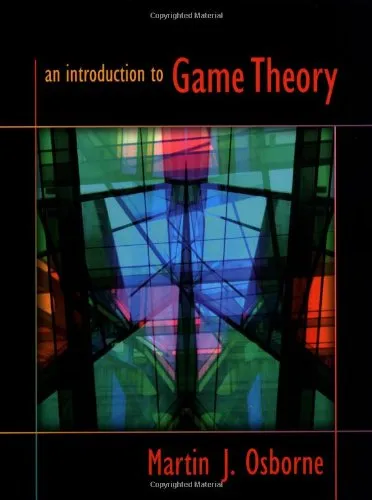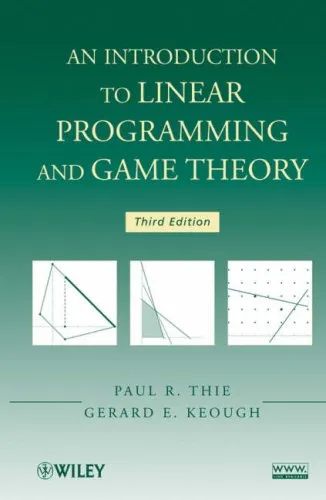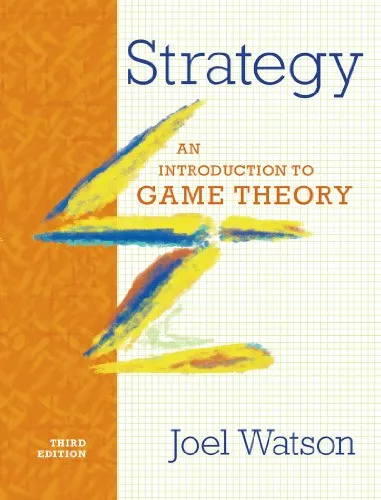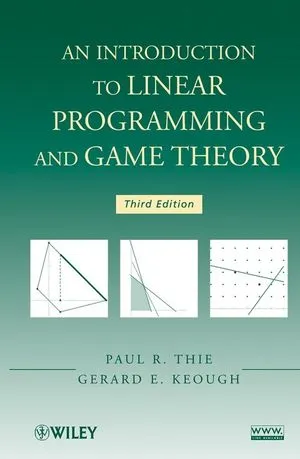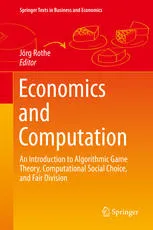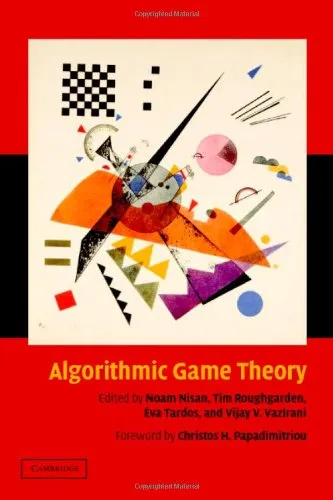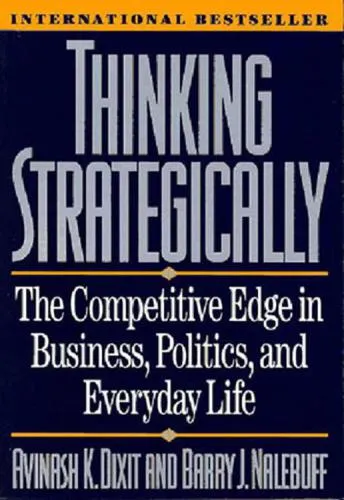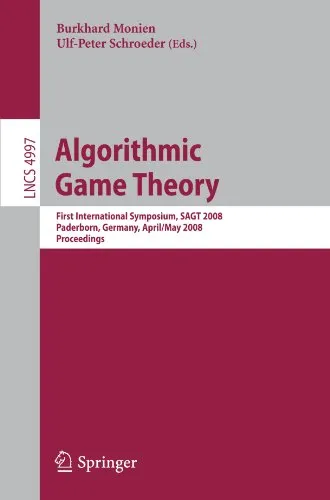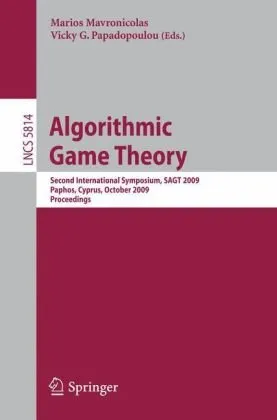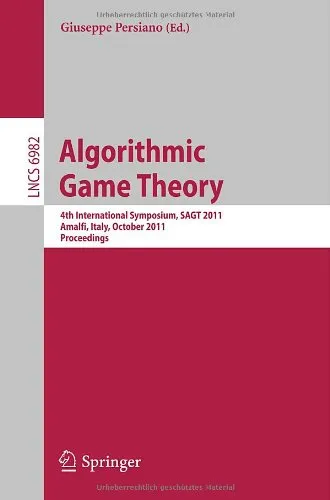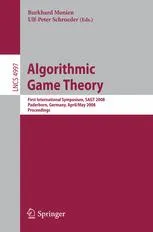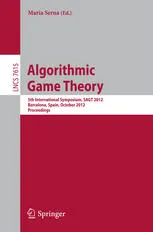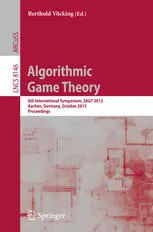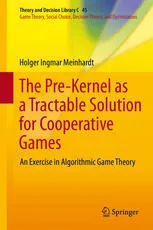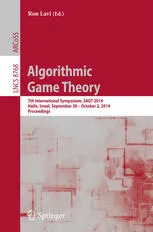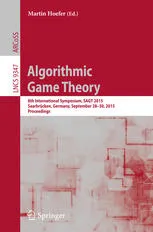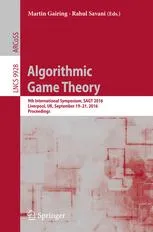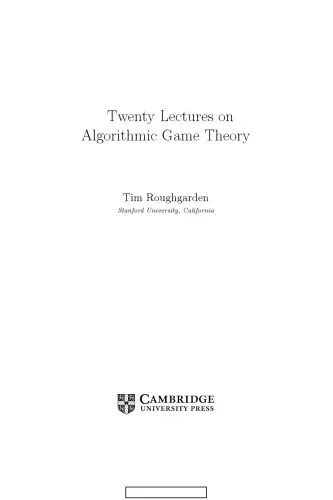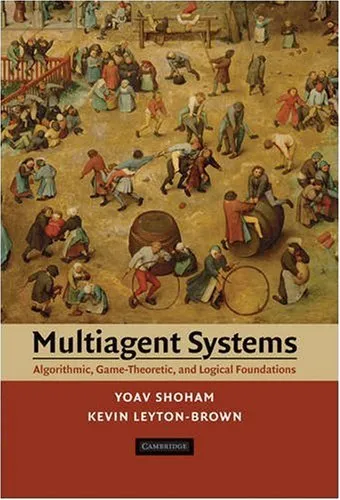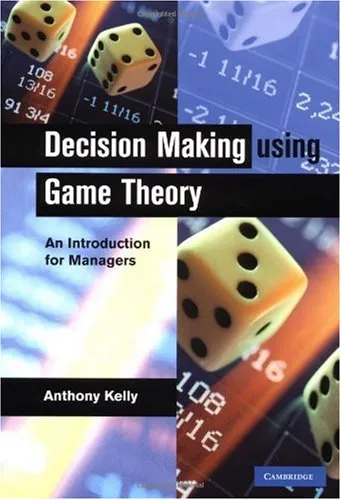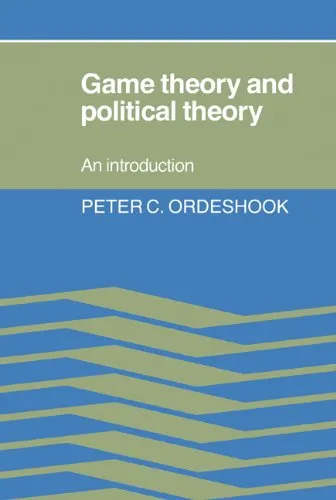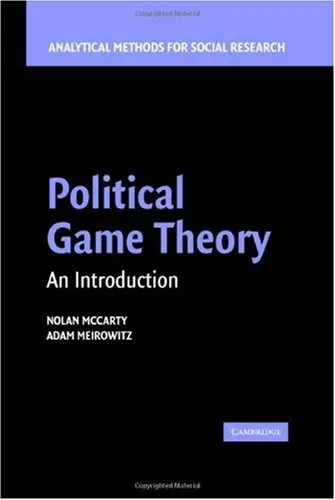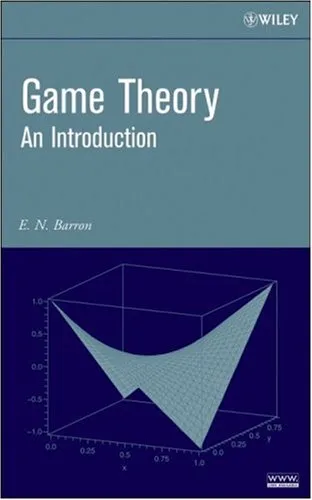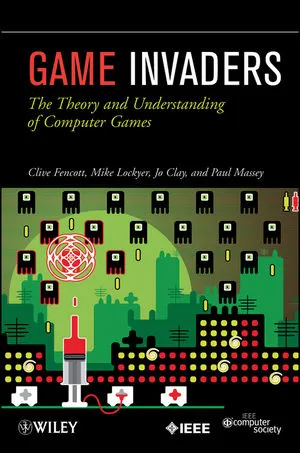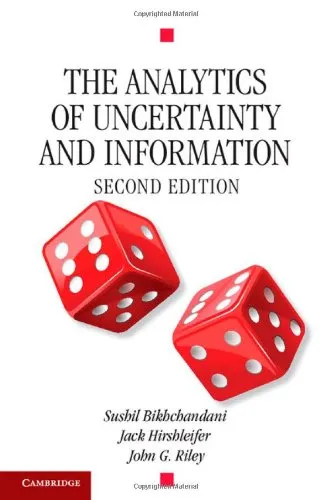Essentials of Game Theory: A Concise, Multidisciplinary Introduction
4.5
Reviews from our users

You Can Ask your questions from this book's AI after Login
Each download or ask from book AI costs 2 points. To earn more free points, please visit the Points Guide Page and complete some valuable actions.Related Refrences:
Introduction to "Essentials of Game Theory: A Concise, Multidisciplinary Introduction"
"Essentials of Game Theory: A Concise, Multidisciplinary Introduction" is a ground-breaking book authored by Kevin Leyton-Brown and Yoav Shoham. This book serves as an accessible and compact guide to the fundamental principles of game theory, positioning itself as an essential resource for readers who wish to gain a clear understanding of this intellectually rich field. Rooted in multidisciplinary approaches, the book synthesizes key concepts and presents them through a lens that appeals both to beginners and to practitioners in economics, computer science, social science, and beyond.
Game theory — the study of strategic interactions where the outcome for each participant depends on the actions of others — has become critical in understanding human behavior, economic systems, and decision-making processes. By presenting concepts in a clear and concise manner, this book demystifies the field, making it approachable yet retaining its depth and rigor. Whether you're a student, researcher, or curious thinker, "Essentials of Game Theory" provides the foundational knowledge needed to analyze strategic decisions in a variety of contexts.
Detailed Summary of the Book
This concise work introduces readers to the basics of non-cooperative and cooperative game theory while focusing on key ideas rather than overwhelming them with mathematical complexities. The structure of the book is meticulously designed, covering topics such as normal-form and extensive-form representations of games, Nash equilibrium, mixed strategies, repeated games, coalitional games, and beyond.
Each concept is laid out with clarity, eschewing unnecessary technical jargon. The authors emphasize intuition and conceptual understanding, appealing to readers from a variety of disciplines. Moreover, the multidisciplinary nature of the book ensures that it speaks to fields such as economics, political science, social psychology, and computer science, underlining the omnipresence of game theory in modeling decision-making.
What sets the book apart is the integration of key insights from algorithmic game theory and mechanism design. In a world increasingly driven by global data and digital interactions, concepts like computationally feasible solution methods for games are of immense practical relevance. These insights prepare readers to think critically about real-world problems in domains such as market analysis, negotiations, auctions, and multi-agent systems.
Key Takeaways
- Basic understanding of key game theoretic concepts, including Nash equilibrium, subgame perfect equilibrium, and Pareto efficiency.
- A clear distinction between cooperative and non-cooperative game theory and their applications.
- Insights into how games are represented in both normal and extensive form, allowing readers to model strategic interactions effectively.
- An introduction to algorithmic game theory, which explores computational aspects of strategic decision-making.
- Practical examples and applications that demonstrate how game theory can solve real-world decision-making problems.
Famous Quotes from the Book
"Game theory provides a structured framework for analyzing situations of strategic interaction."
"Understanding strategic reasoning is not just an academic exercise; it forms the backbone of decision-making in a world defined by interdependence."
Why This Book Matters
"Essentials of Game Theory" matters because it fills a crucial niche: its concise and interdisciplinary approach distills the essence of game theory without unnecessary technical complications. In a world increasingly shaped by interconnected agents—whether individuals, institutions, or computational entities—understanding strategic decision-making is more important than ever.
Furthermore, the book bridges the gap between theoretical rigor and practical applications. It equips readers with the intellectual tools to model conflict, cooperation, competition, and coordination in real-world scenarios. Whether you're studying economics, political science, artificial intelligence, or behavioral science, the text offers a fundamental toolkit for navigating and analyzing systems driven by strategic interaction.
Its multidisciplinary scope and clarity have earned it widespread praise, making it an indispensable primer for those new to the field or seeking a quick refresher on essential concepts. It subjects readers to intellectual rigor while maintaining clarity, preparing them for more advanced study or practical problem-solving alike.
Free Direct Download
You Can Download this book after Login
Accessing books through legal platforms and public libraries not only supports the rights of authors and publishers but also contributes to the sustainability of reading culture. Before downloading, please take a moment to consider these options.
Find this book on other platforms:
WorldCat helps you find books in libraries worldwide.
See ratings, reviews, and discussions on Goodreads.
Find and buy rare or used books on AbeBooks.
1523
بازدید4.5
امتیاز0
نظر98%
رضایتReviews:
4.5
Based on 0 users review
Questions & Answers
Ask questions about this book or help others by answering
No questions yet. Be the first to ask!
